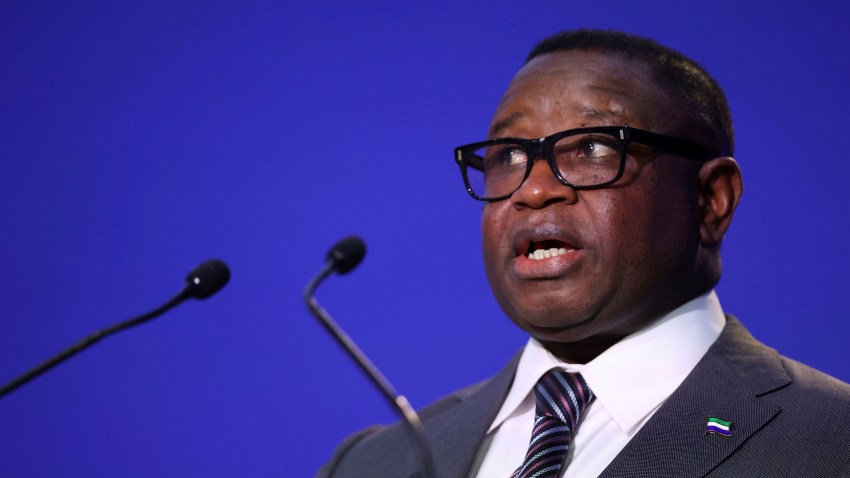On June 24, Sierra Leone’s 3.3 million voters will head to the polls for elections that will determine their next president, parliamentary representatives and local councilors. And if recent elections are a reliable indicator, turnout will be high: The country’s last three polls have seen an average participation rate of 82 percent.
Those voting in the presidential election will do so with a degree of familiarity with the major contestants. The two leading candidates and their running mates remain unchanged from 2018. However, while Julius Maada Bio of the Sierra Leone People’s Party, or SLPP, was the main opposition candidate in 2018, this time he is seeking reelection to a second term as the incumbent president. Samura Kamara—who in 2018 was handpicked by outgoing President Ernest Bai Koroma as the candidate for the All People’s Congress, or APC—is once again the party’s flagbearer, after winning the endorsement of its delegates at the APC’s national convention in February. Kamara secured the party’s nomination despite facing an ongoing court case for corruption and misallocation of funds relating to the renovation of a government office in the U.S. during his tenure as foreign minister in the 2010s.
Although the APC has been embroiled in a drawn-out—and court mediated—internal dispute over internal democracy and accountability among its leadership, it will nevertheless represent the greatest challenge to the SLPP in June’s election. Smaller splinter parties that performed well in 2018—notably the National Grand Coalition, or NGC, which won four seats and 6.8 percent of the presidential vote that year, and the Coalition for Change, which won eight seats and 3.5 percent of the vote—are no longer relevant forces this time around. On April 24, the NGC announced a formal alliance with the SLPP that will see the party back Bio’s reelection bid, although they will still field their own candidates for parliamentary races. However, the switch to a district-level proportional representation system for this year’s legislative polls, with a vote-share threshold of 11.9 percent required to win a seat in a district, will reduce their—and other smaller parties’—chances of electoral success.

